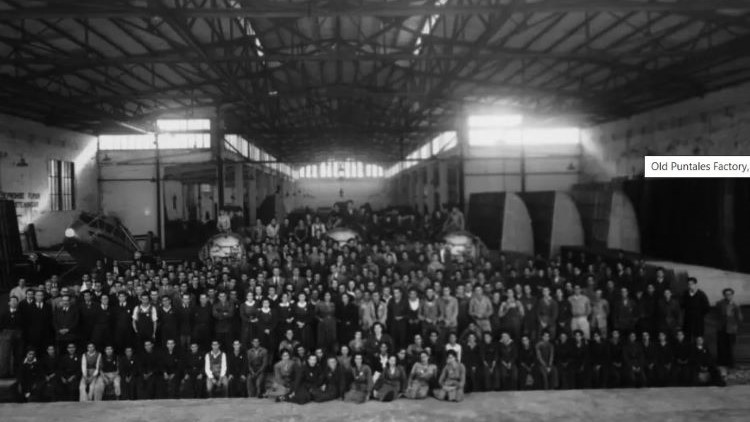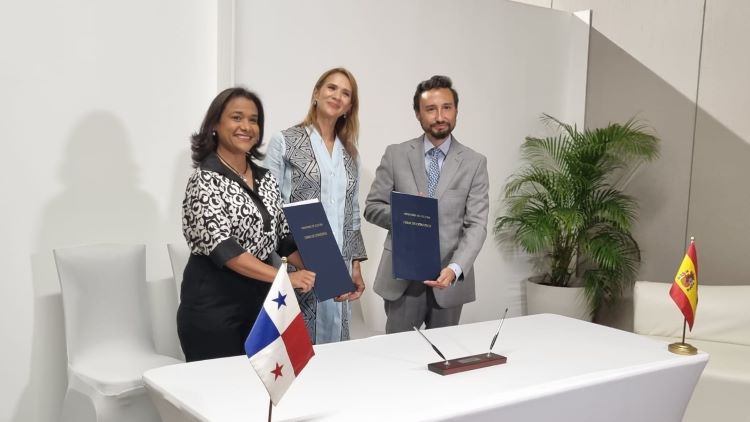The Diplomat
King Felipe VI will preside today in Getafe, accompanied by the President of the Government, Pedro Sánchez, and the Minister of Foreign Affairs, José Manuel Albares, the central act of the centenary of the creation of Construcciones Aeronáuticas, Sociedad Anónima (CASA), the driving force of the sector and the heart of the national aerospace and defense industrial fabric, currently integrated in the Airbus Group.
The commemorative acts of CASA’s centenary will be extended throughout this year in the different Airbus plants in Spain -Getafe, Illescas, Cadiz, Seville (Tablada and San Pablo) and Albacete- and will count with the participation of all the employees and with the collaboration of customers and prominent authorities in Spain.
On March 3, 1923, José Ortiz Echagüe constituted and founded the company CASA, of which he would also become president. The company started its activity in a plot of land in Getafe, which was followed by the Puntales plant in Cadiz -embryo of Puerto Real and Puerto de Santa Maria-, inaugurated in 1928, and the Tablada plant in 1942. Later, in the 1950s, the first facilities were built in San Pablo (Seville). From the 1980s onwards, the Barajas and Illescas plants were commissioned and, finally, the Albacete plant, which opened in 2007.
“A century later, Airbus continues to transform the industry and contribute to building a safer and more connected world, being the leading aeronautical and space company in Europe,” the Royal House reported in a press release. The Netherlands-based Airbus Group is the European Union’s largest industrial corporation in the aviation and space sector and the world’s largest aerospace group alongside Boeing.
“After a long history in the design and production of military aircraft and superior scientific satellites, as well as in the manufacture of essential components for the world’s leading commercial aircraft and helicopters, Spain is today one of the few countries in the world with the capacity to manage the complete cycle of an aircraft: design, manufacture, delivery and in-service support,” it added.
As Airbus informed on the occasion of this centenary, since the creation of CASA in March 1923, “the Spanish industry has not ceased to evolve and today houses production facilities for Airbus aircraft and helicopters, as well as space and defense products”. In addition, “the research and development centers in Spain are also vital to keep Airbus at the forefront of technology, preparing for the next hundred years”.
Around 13,000 highly qualified Airbus employees work in eight centers spread across three of Spain’s main regions: Madrid, Castilla-La Mancha and Andalusia. As a result, Airbus is at the heart of the aerospace and defense industry in Spain, leading most of the country’s national and cooperative programs in these sectors.
Defense activities account for a large part of Airbus’ business in Spain. This has its roots in CASA’s heritage, specifically in the twin-engine C-212 Aviocar STOL (short take-off and landing) transport aircraft, developed in the 1960s and built for 40 years. Currently, Airbus-Spain is focused on the development of aircraft for strategic and tactical transport and special missions, as well as playing an important role in the multinational Eurofighter fighter program. In addition, Airbus has also developed in Spain its capabilities for drones and unmanned aerial vehicles of current and future generation and our country will host the development center for the Future Combat Air System (FCAS), which is Europe’s most important defense project for the coming decades.
In addition, Spain is also involved in the design, engineering and manufacturing of components for almost all Airbus wide-body and single-aisle commercial aircraft and plays a key role in Airbus research and development in support of a more sustainable air transport industry. Airbus also leads the helicopter business in Spain (following a long tradition dating back to the 1920 invention of the gyroplane by Spanish engineer Juan de la Cierva) and has been involved, since 1966, in European and Spanish national space programs, with participation in satellites, launchers and in-orbit infrastructure.







